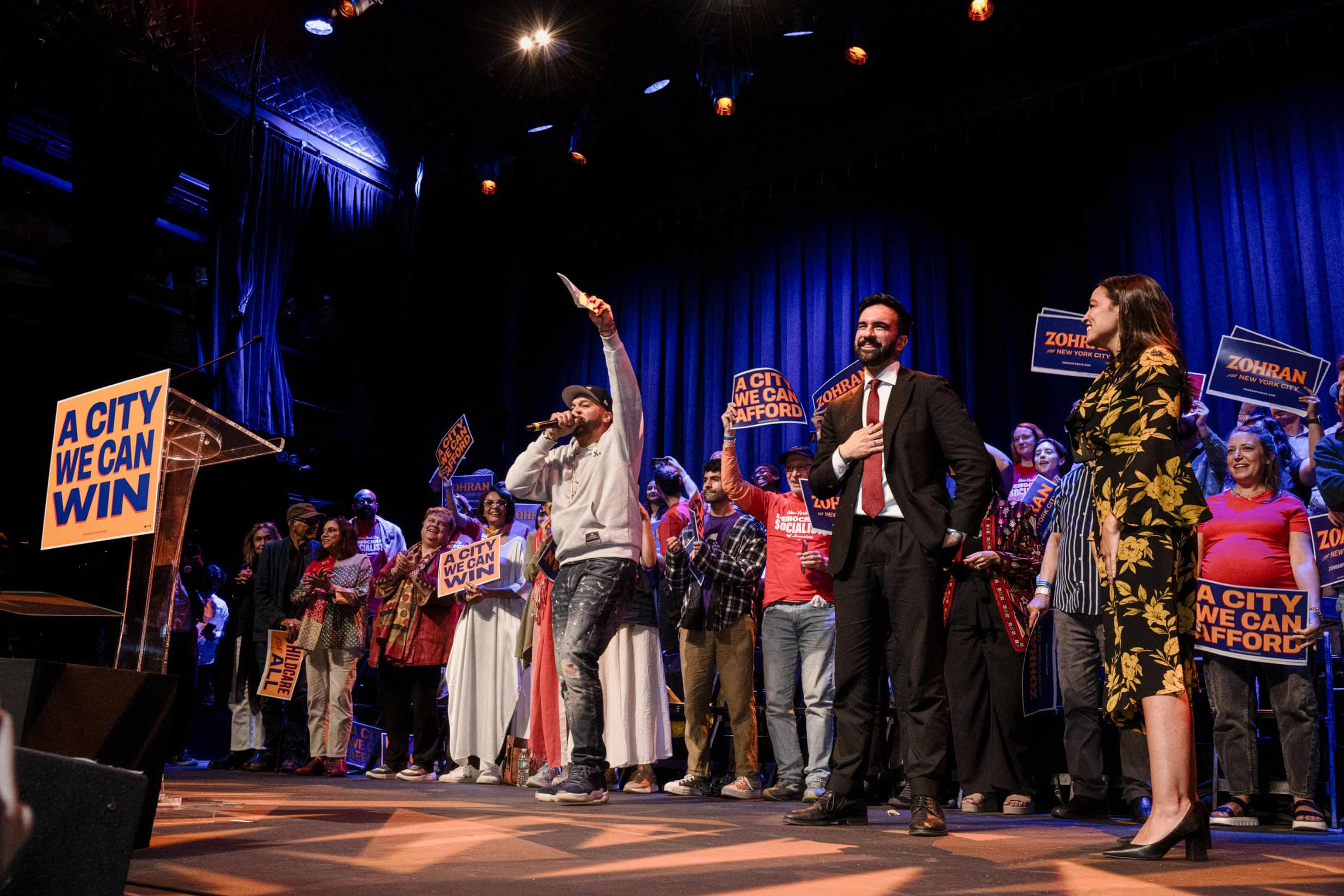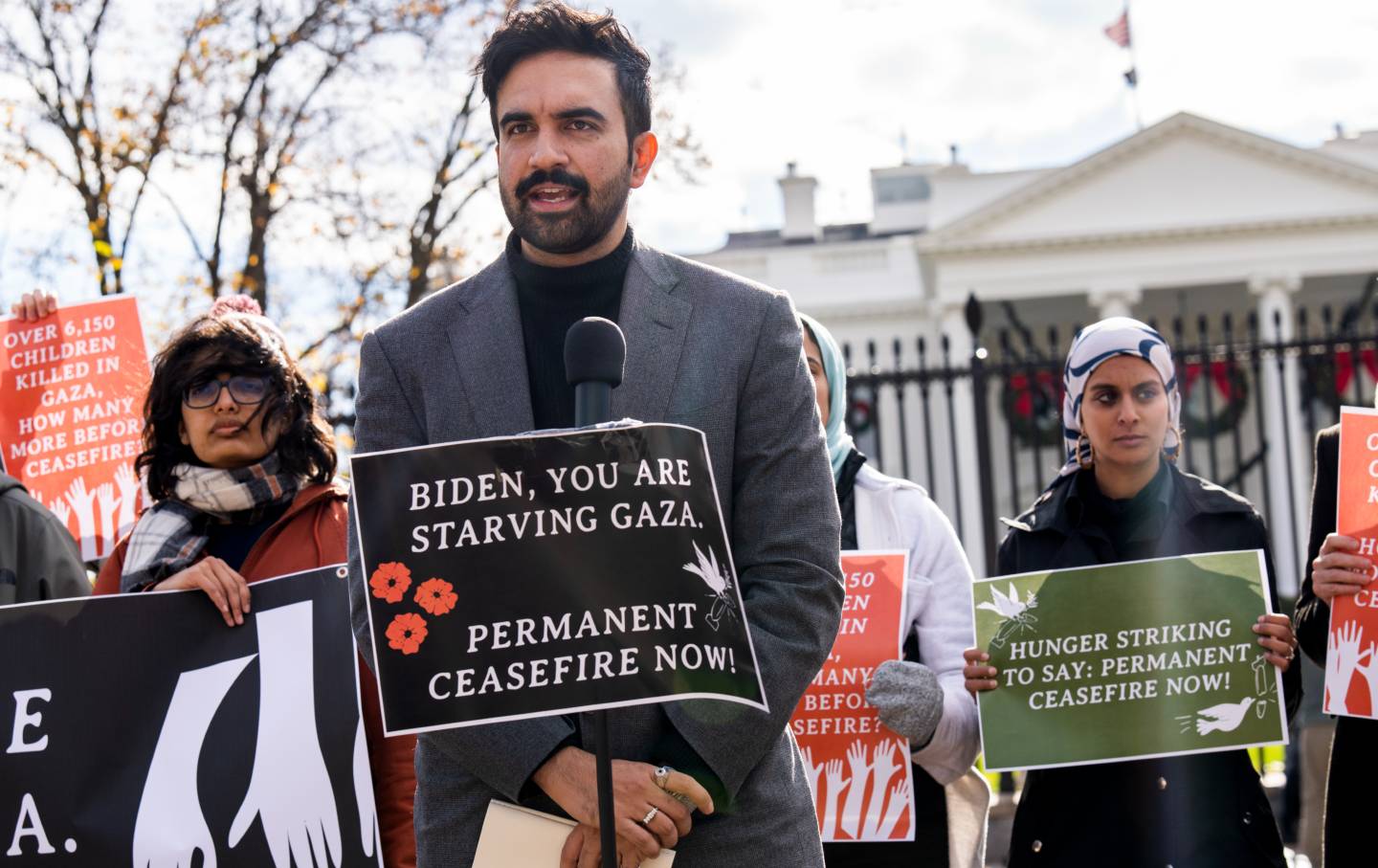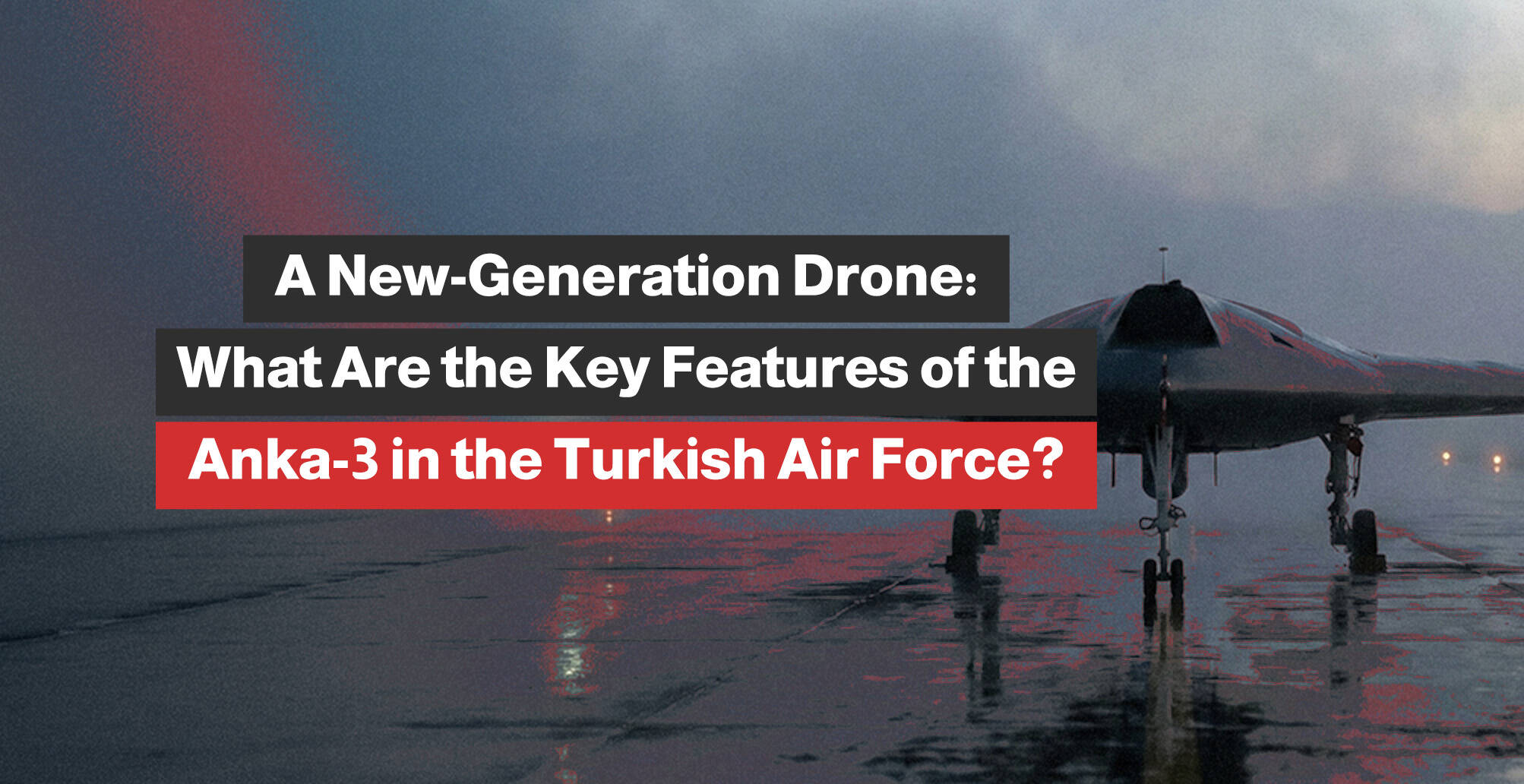Zohran Mamdani: Could a Pro-Palestine Muslim Socialist Become the Next Mayor of New York?

“US President Donald Trump described Zohran Mamdani as a communist lunatic.”
In an unusual scene in American politics, former New York Governor Andrew Cuomo announced his defeat to Zohran Mamdani, a Muslim lawmaker who won the Democratic primary for New York City Mayor.
Mamdani, 33, drew widespread support from young people, minorities, and left-wing figures, leveraging an active social media campaign and a progressive political platform centered around issues of cost of living, social justice, and equality.
He is known for his outspoken and public defense of the Palestinian Cause, repeatedly speaking of it as a matter of liberation and human rights, and describing Israel's actions in Gaza as genocide.
Despite the momentum his campaign gained, he was not immune to criticism, particularly from Jewish organizations and pro-“Israel” advocates in New York, the city with the largest Jewish community outside the Middle East.
His victory is not limited to its personal or symbolic dimension; it carries deeper implications related to political and cultural shifts in New York City, and perhaps even in the U.S. as a whole.
If Mamdani wins November’s general election for mayor, he will be the first Muslim of Indian descent to lead the largest city in the U.S.
Surprising Rise
In a move described by the media as a political earthquake that deepens divisions within the Democratic Party, progressive activist Zohran Mamdani won the Democratic nomination for mayor of New York City.
By a margin of about 8%, he told a crowd of supporters, “In the words of Nelson Mandela: it always seems impossible until it's done. My friends, it is done. And you are the ones who did it.”
He accused his opponent, Cuomo—who resigned from office in 2021 amid sexual harassment allegations—of trying to buy the recent election with the support of billionaires and large corporations.
Mamdani made no secret of his Muslim identity, but made it a prominent feature of his campaign, visiting the mosque several times with a group of supporters.
He also leveraged his image as a Muslim immigrant and the son of a city with millions of immigrants, which helped him build a personal connection with voters.
His surprising rise was partly due to a sharp social media campaign, which allowed him to reach many voters across the city who had previously been uninterested in politics.
Mamdani campaigned on a platform of social justice, targeting the rising cost of living with ambitious promises that included free buses, free kindergarten, and a rent freeze in a city where apartments cost more than $6,000 a month.
His promises also included the establishment of city-run grocery stores at wholesale prices and a gradual increase in the minimum wage to $30 per hour by 2030.
He indicated that he would fund his $10 billion plan by raising the corporate tax rate to 11.5% and imposing a 2% income tax on wealthy individuals earning more than $1 million annually.
He has received endorsements from prominent left-wing figures, including Senator Bernie Sanders, Congresswoman Alexandria Ocasio-Cortez, Congresswoman Nydia Velazquez, Attorney General Letitia James, and Jewish Voice for Peace Action.
A number of celebrities have also joined in promoting his campaign, most notably actress Emily Ratajkowski and comedian Bowen Yang.

Mamdani's Experience
Mamdani was born in 1991 in Kampala, Uganda, to Indian parents and became an American citizen in 2018.
He lived with his family briefly in Cape Town, South Africa, before moving to New York City when he was seven years old. He later attended the Bronx High School of Science.
He graduated in 2014 from Bowdoin College in Maine, where he earned a degree in Africana studies and co-founded his college’s Students for Justice in Palestine chapter.
After graduating from college, he worked as a foreclosure prevention consultant in Queens, helping residents avoid eviction, a job he says inspired him to run for public office.
He was first elected to the New York Assembly in 2020, knocking off a longtime Democratic incumbent for a Queens district covering Astoria and surrounding neighbourhoods. He has handily won re-election twice.
His opponents, particularly Cuomo, have dismissed him as woefully unprepared for managing the complexities of running America’s largest city.
But Mamdani described his relative inexperience as a potential advantage, saying in a mayoral debate he was proud not to have Cuomo’s experience of corruption, scandal, and disgrace.
Mamdani’s outspoken support for the Palestinian Cause was a point of tension in the mayor’s race, as Cuomo and other opponents sought to label his defiant criticism of “Israel” as antisemitic.
The pro-Palestinian Muslim described Israel’s military campaign in Gaza a genocide and said the country should exist as a state with equal rights rather than a Jewish state.
That remarks have resonated among pro-Palestinian residents, including the city’s roughly 800,000 adherents of Islam, the largest Muslim community in the country.
It is noteworthy that Mamdani’s refusal to condemn calls to ‘globalize the intifada’ drew recriminations from Jewish groups and fellow candidates in the days leading up to the election.

Deep Implications
Mamdani's victory cannot be read in isolation from the controversy surrounding his clear positions on the Palestinian-Israeli conflict.
It may also be interpreted as a sign of a general trend toward reconsidering unconditional US support for “Israel”, particularly among younger generations and progressive voters.
His victory also comes at a time when the U.S. is reeling from the effects of the Trump administration, characterized by anti-immigrant and anti-Muslim rhetoric and the deliberate distortion of their image in the media and politics.
However, this hostile climate did not prevent the rise of a young Muslim man with unconventional features, speaking on behalf of the marginalized and the poor, and leading an electoral campaign from neighborhoods severely affected by economic and societal policies.
His remarkable victory, despite his limited political experience, also reveals a profound shift in the consciousness of US society, particularly in major cities, which are increasingly reeling from the bitterness of elitist politics and are seeking a more equitable and inclusive discourse.
Mamdani not only won an election, but he was able to reshape the narrative of belonging in the city, establishing a new era in which Muslims can be not just victims of racism, but actual shapers of policy and the future.
New York's general election will be held on November 4th. Mamdani will face incumbent Mayor Eric Adams, a former Democrat who has decided to run for re-election as an independent after being accused of corruption.
The Republican candidate for mayor is Curtis Sliwa, founder of Guardian Angels, a nonprofit crime prevention organization.
With the general election approaching, New York appears to be on the cusp of a major transformation if Mamdani is officially elected mayor.
It is no longer just a matter of a Muslim candidate winning, but rather of the ability of progressive popular discourse to make a real breakthrough in a political establishment long influenced by money and foreign policy lobbies.
The clearest message from Mamdani's victory is that US voters, especially young people, are beginning to demand genuine representation that reflects their daily concerns and breaks the monopoly of powerful elites on political decision-making.
If he can maintain this momentum, his rapid political rise will be a blow to his Democratic Party and will give hope to other progressives aspiring to run for office across the U.S.

Concern and Criticism
Despite his primary victory, Mamdani still faces significant challenges. Even if he wins the mayoralty, he will likely face stiff resistance from major corporations and political elites who view his progressive policies as a threat to their interests.
In Mamdani, progressives see a candidate who can lead them to greater electoral success while Republicans see another chance to label the party as extreme
US President Donald Trump, in turn, attacked Mamdani, calling him a communist lunatic, arguing that the Democrats had crossed a red line with this move.
“We've had radical leftists before, but this is getting a little ridiculous. He looks awful, sounds awful, and isn't very smart. This is a big moment in the history of our country,” he said.
Billionaire hedge fund manager Dan Loeb commented on X, saying, “It's officially the summer of the communists,” in a sarcastic reference to Mamdani's strong momentum.
Cathy Wilde, a prominent figure who has connected New York's financial, real estate, and media elites to policymakers for decades, said Mamdani is an inspiration to the younger generation, but his ideological approach terrifies taxpayers and employers.
Wall Street’s hedge fund king Bill Ackman said Mamdani's policies would lead to New York's bankruptcy, potentially making it more dangerous and economically vulnerable.
Veteran Wall Street lawyer Richard Farley said the city’s wealthy see the November election as a watershed moment.
“If Mamdani wins, many who could easily take their businesses elsewhere will seriously consider it,” he added.
Wall Street headhunter Michael Nelson said the mood is grim among clients who typically make more than $1 million a year.
However, there are signs that at least some on Wall Street might be warming to the democratic socialist candidate, but so far that sentiment is limited.
“If elected mayor, Mamdani could unite the city to address its critical education, public safety, housing and economic development needs,” said Ralph Schlosstein, former head of Evercore Inc. and a longtime Democrat.











